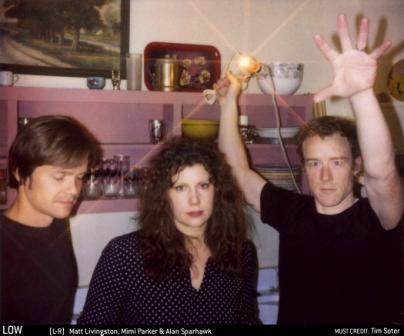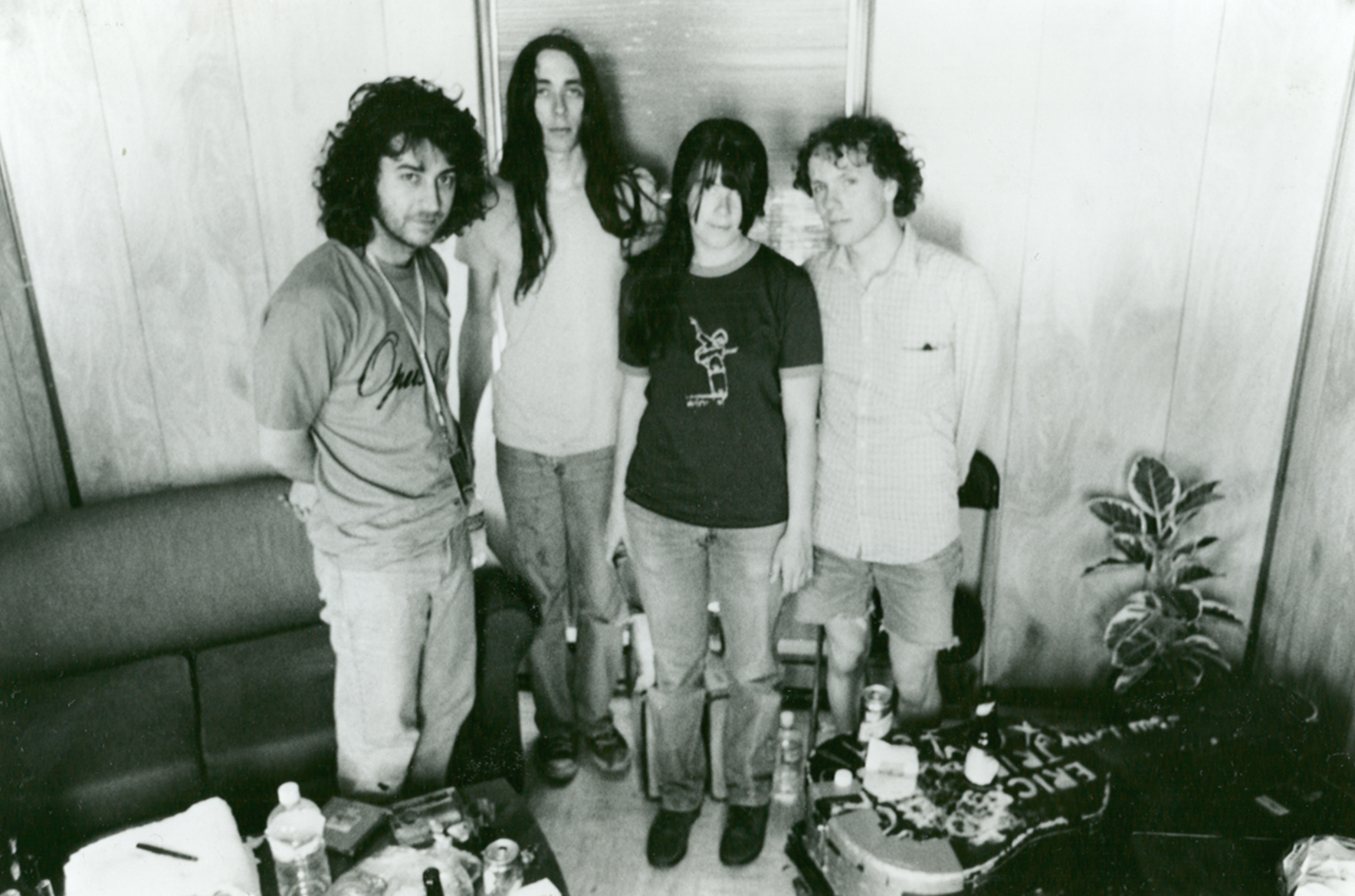In Gainesville, Fla., it’s 94 degrees and not yet noon, and Holopaw’s John Orth can’t decide whether to stay in and work or head to the springs. This might seem like a no-brainer, but days like this are hardly rare in the north Florida college town where Orth lives. Besides, the crystalline glaze of the Ichetucknee River is a short drive away. His band’s second album, Quit +/or Fight, is just out on Sub Pop, and Orth is working odd jobs to make a living, but the scenery tends to distract him. “I make my own hours, which is a detriment and a blessing,” he says. “[Here] you can drive 10, 15 miles and be in the country, so I love that.”
Country is what first comes to mind upon hearing Quit‘s fingerpicked guitars, its pedal steel, and the gentle waver of Orth’s vocals as he describes waterspouts, electrical storms, and other uniquely Southern aspects of nature in his songs. “In the South, there are beautiful, lush landscapes that also have a sinister quality, and it’s the same with the culture,” he says. While drawing inspiration from his surroundings, Orth attributes the band’s porch-rocking vibe to the music he and guitarist Jeff Hays grew up listening to. “[Those influences] are more relevant on our first record [2003’s Holopaw] and are more a product of our individual influences than any conscious effort to emulate a style or to react to this place,” Orth says.
Found, a Chicago-based magazine of letters and images to which Orth contributes, was the inspiration for Quit‘s name and title track. “I had the people sorting books at [nonprofit volunteer organization] Friends of the Library set things [they found inside the books] aside for me, and the core of that song is direct quotes from this amazing letter that I imagine was written by an older gentleman assessing his life,” Orth says. “There’s a line that reads, ‘quit +/or fight,’ like he’s trying to figure out which option he’s gonna choose.”
Orth taps into his own frustrations on many of Quit‘s songs, like meditative, sexy closer “Shiver Me” and others showing internal struggles with love and longing. As Orth awaits his longtime boyfriend’s return from a distant grad school, he admits that several of the new songs have autobiographical beginnings. “Being in a long-distance relationship—the instability that that has created [made] some of the lamenting on the record very real and very easy to tap into,” he says. “A good sad song, sweet imagery that has a dark turn, has always been my interest in songwriting.”
By contrast, Holopaw’s arrangements often seem weightless. “Losing Light” opens the album, its languid guitar and keyboard grounded by bass and a soft but insistent disco beat. “3-Shy-Cubs” houses blips and hand claps as if stray sounds from a rave and a square dance somehow landed on the same, noncompetitive plane. As the song bursts into a Shins-like jangler, Orth’s lilt holds the halves together.
The members of Holopaw—Hays, multi-instrumentalist Michael Johnson, bassist Tobi Echevarria, and keyboardist Ryan Gensemer—met while attending Gainesville’s University of Florida almost six years ago. At the time, Orth was making small, intricate comic books, which Hays began pulling lyrics from for their earliest songs. “When we first got together, we imagined being a really simple country band,” Orth says. “And as we added players to embellish live shows, their influences figured in, and we evolved into a much weirder country band.” Johnson used antique synthesizers and keyboards to add ambience on both albums; on Quit, these are enhanced by strings and vibes from Tom Reno of the instrumental band the Mercury Program. Indie hip-hop beatsmith Daedelus also contributed woodwind flourishes on “Curious,” the first single.
Playing live in their current lineup since 2002, Holopaw were discovered by Modest Mouse’s Isaac Brock in a Gainesville bar while Brock was living there. He quickly tapped Orth to co-write Ugly Casanova’s Sharpen Your Teeth and considered starting a label to release Holopaw’s debut. Brock moved back to the Northwest within a year, passing the album to Sub Pop. Perhaps they were also charmed by Orth’s amiable nature, a kind of Southern hospitality that the songwriter acknowledges is laden with contradictions. “Even if it’s a front,” Orth says, “it’s a very pleasant front.”








